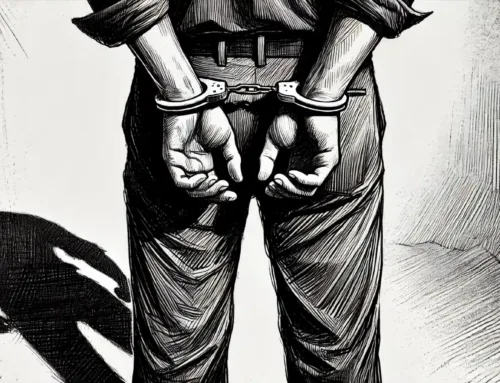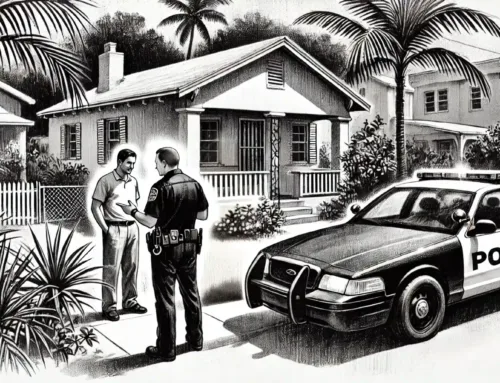Domestic Violence Injunction Immigration Consequences in Florida
If you’re not a U.S. citizen and find yourself facing a domestic violence injunction in Florida, the consequences can extend far beyond state court. While an injunction is technically a civil matter, it can have serious implications for your immigration status—affecting everything from green card applications to naturalization eligibility. As experienced Miami criminal defense attorneys, we’ve seen how these cases can have life-changing effects when not handled carefully.
What Is a Domestic Violence Injunction?
In Florida, a domestic violence injunction—commonly known as a restraining order—is a court order that protects someone who claims to be the victim of abuse or threats of abuse from a household or family member. The injunction can require the respondent to stay away from the petitioner, leave a shared home, have no contact, and surrender firearms.
Although it’s a civil order, violating it is a criminal offense. And when immigration authorities review your background, even the existence of an injunction can raise red flags about your conduct and moral character.
How Immigration Authorities View Domestic Violence Allegations
Federal immigration law treats domestic violence as a serious matter. Under the Immigration and Nationality Act (INA), certain domestic violence offenses and even violations of protection orders can make a noncitizen deportable or inadmissible. This means that even if you’re not convicted of a crime, an injunction on your record can lead immigration officials to question whether you should remain in or be allowed to re-enter the United States.
When reviewing visa renewals, green card applications, or citizenship petitions, immigration officers may ask:
- Was there a related criminal charge connected to the injunction?
- Did the respondent consent to the injunction without admitting guilt?
- Has there ever been a violation of the order?
- Does the injunction suggest a pattern of threatening or violent behavior?
Even without a conviction, the existence of an injunction may delay immigration processing, result in requests for more evidence, or even lead to denials.
Civil Findings Can Still Impact Immigration
Many people assume a domestic violence injunction won’t affect them because it’s not a criminal conviction. Unfortunately, immigration law focuses on behavior, not just convictions. A judge’s decision to issue a final injunction after a hearing can be viewed by immigration authorities as evidence that domestic violence occurred.
That judicial finding can come up in several immigration contexts:
- Green Card Applications: USCIS may use a final injunction as evidence against your “good moral character.”
- Adjustment of Status: Applicants seeking permanent residency can face delays or denials if an injunction is on record.
- Naturalization: Domestic violence injunctions during the required moral character period (usually five years) can result in denial of citizenship.
- Deportation Proceedings: If the injunction is linked to a criminal case or violated later, ICE may use it as grounds for removal.
Violating an Injunction: A Critical Immigration Trigger
If you violate a domestic violence injunction in Florida—by contacting the petitioner, returning to a shared home, or failing to surrender firearms—you could face criminal charges. A conviction for violating a protection order is specifically listed under federal immigration law as a ground for deportation. Even a non-violent or “minor” violation, such as sending a text message, can have devastating consequences for your ability to stay in the United States.
Consent Injunctions: Hidden Immigration Risks
In many Florida cases, respondents agree to a “consent injunction” to avoid a drawn-out hearing or to keep the peace. While this might seem like a good compromise, immigration officials may still treat the order as a judicial finding of abuse unless the record clearly states that you denied the allegations. Even if there’s no admission of guilt, the mere presence of the order in public records can raise questions about your character and conduct.
Before agreeing to any injunction—even one entered by consent—you should always consult with a criminal defense attorney who understands both Florida law and its potential immigration consequences.
Modifying or Dissolving an Injunction
If a domestic violence injunction has been entered against you, Florida law allows for motions to modify or dissolve the order. Successfully dissolving an injunction can help mitigate some of the harm it causes to your record. While the case will still appear in court databases, a dissolved or dismissed injunction can be used to show that a judge no longer considered the protection necessary—an important fact in any immigration review.
Although expungement isn’t typically available for injunctions, it’s still worthwhile to seek modification or dissolution when circumstances change. It’s one of the few proactive steps available to limit long-term damage.
How Our Firm Approaches These Cases
As Miami criminal defense attorneys, our priority is protecting your rights in state court—but we also understand that what happens here can affect your entire future in the U.S. We advise clients to proceed cautiously when dealing with domestic violence injunctions, especially those who are not U.S. citizens.
We also work closely with immigration counsel when needed, ensuring that every decision made in state court supports your long-term interests.
Practical Steps to Protect Yourself
If you’re a noncitizen facing a domestic violence injunction in Florida, here’s what you should do immediately:
- Take the injunction seriously—don’t ignore the court hearing notice.
- Avoid all contact with the petitioner, including social media or indirect messages.
- Hire a skilled criminal defense attorney to represent you at the hearing.
- Collect and preserve any evidence that supports your defense.
- If you have immigration concerns, consult with an immigration lawyer for guidance.
The earlier you act, the more options you have to protect both your record and your immigration future.
Protecting Your Future
A domestic violence injunction may seem like a temporary civil issue, but for noncitizens, it can have lasting immigration consequences. Even if no criminal conviction follows, the record of the injunction itself can delay or derail applications for permanent residence or citizenship. Every decision—whether to fight, consent, or modify the injunction—should be made with full awareness of these potential effects.
If you’re facing a domestic violence injunction in Miami-Dade County or anywhere in Florida, contact our firm right away. We’ll help you understand your rights, the risks to your immigration status, and the best legal strategy for your situation.
CALL US NOW for a CONFIDENTIAL INITIAL CONSULTATION at (305) 538-4545, or take a moment to fill out our confidential and secure intake form.* The additional details you provide will greatly assist us in responding to your inquiry.
*Due to the large number of inquiries we receive, providing specific details about your case helps us respond promptly and appropriately.
THERE ARE THOUSANDS OF LAW FIRMS AND ATTORNEYS IN SOUTH FLORIDA. ALWAYS INVESTIGATE A LAWYER’S QUALIFICATIONS AND EXPERIENCE BEFORE MAKING A DECISION ON HIRING A CRIMINAL DEFENSE ATTORNEY FOR YOUR MIAMI-DADE COUNTY CASE.








